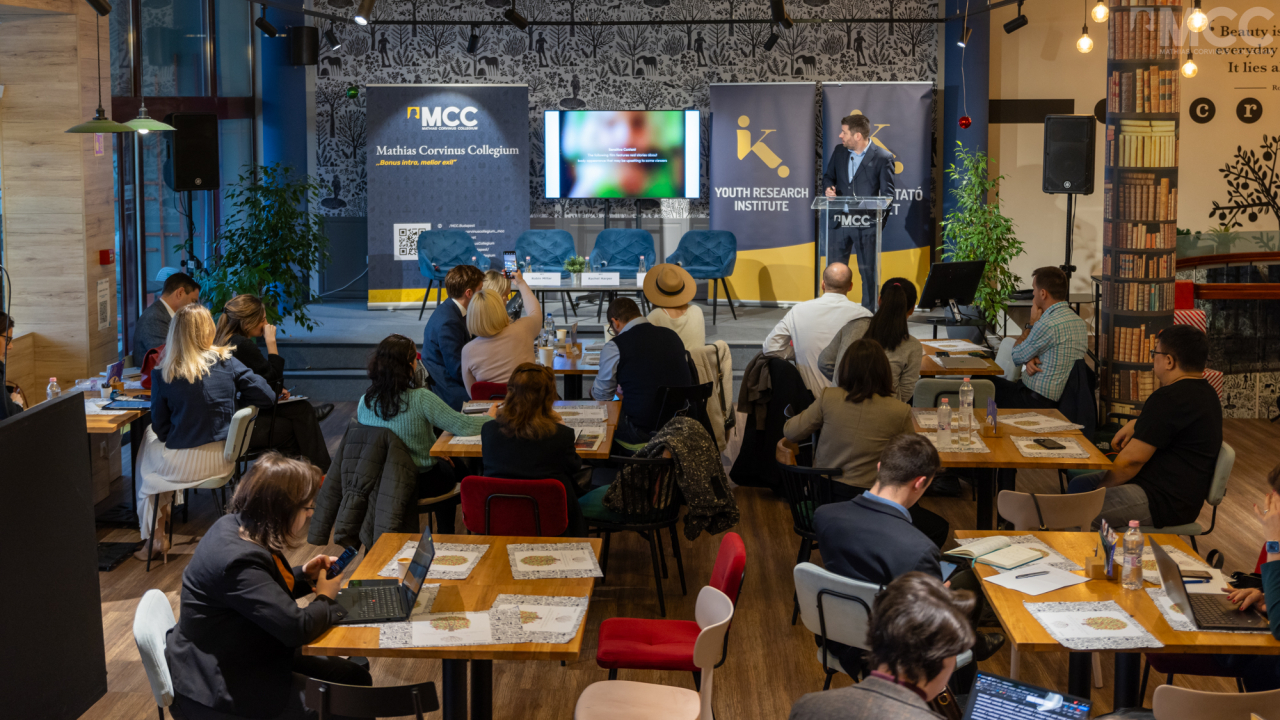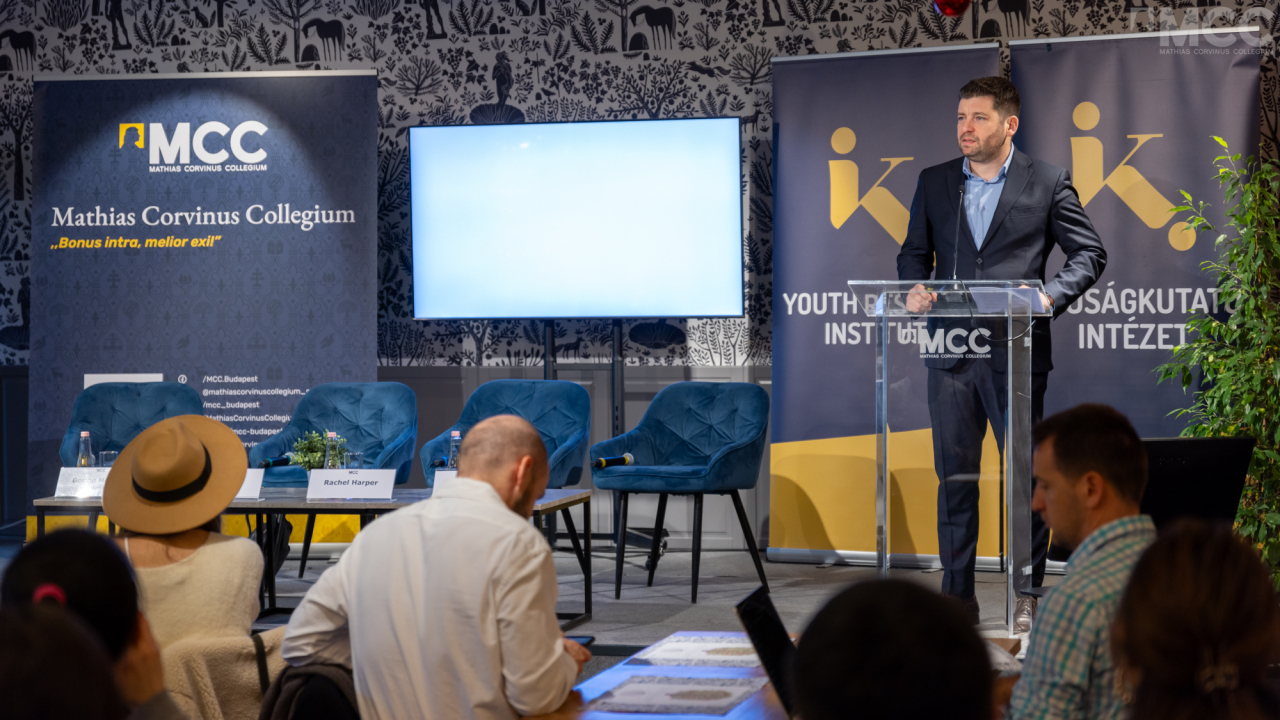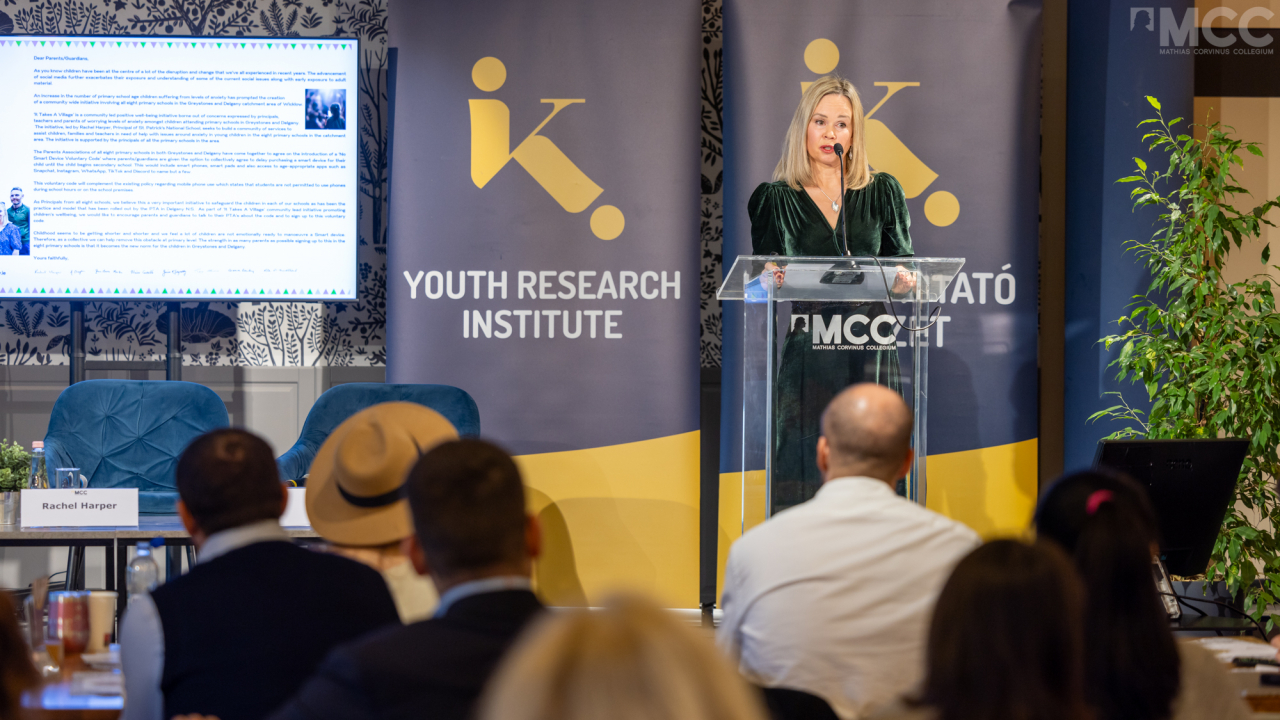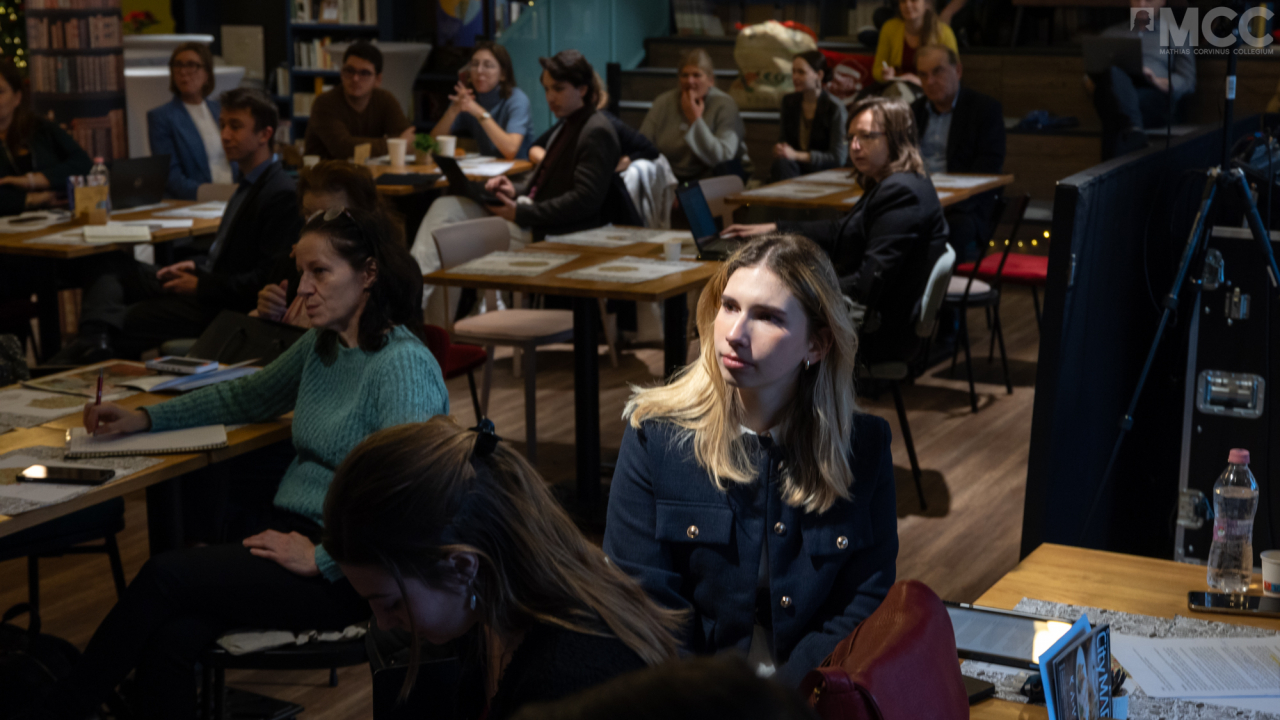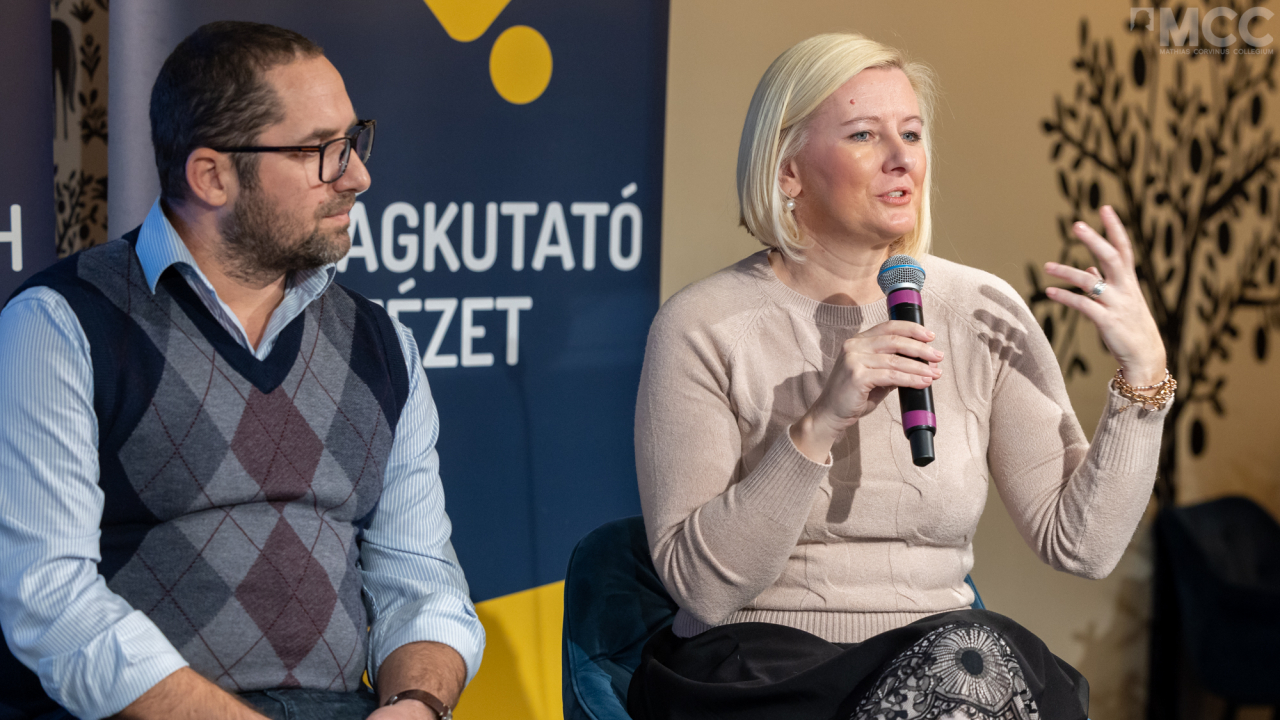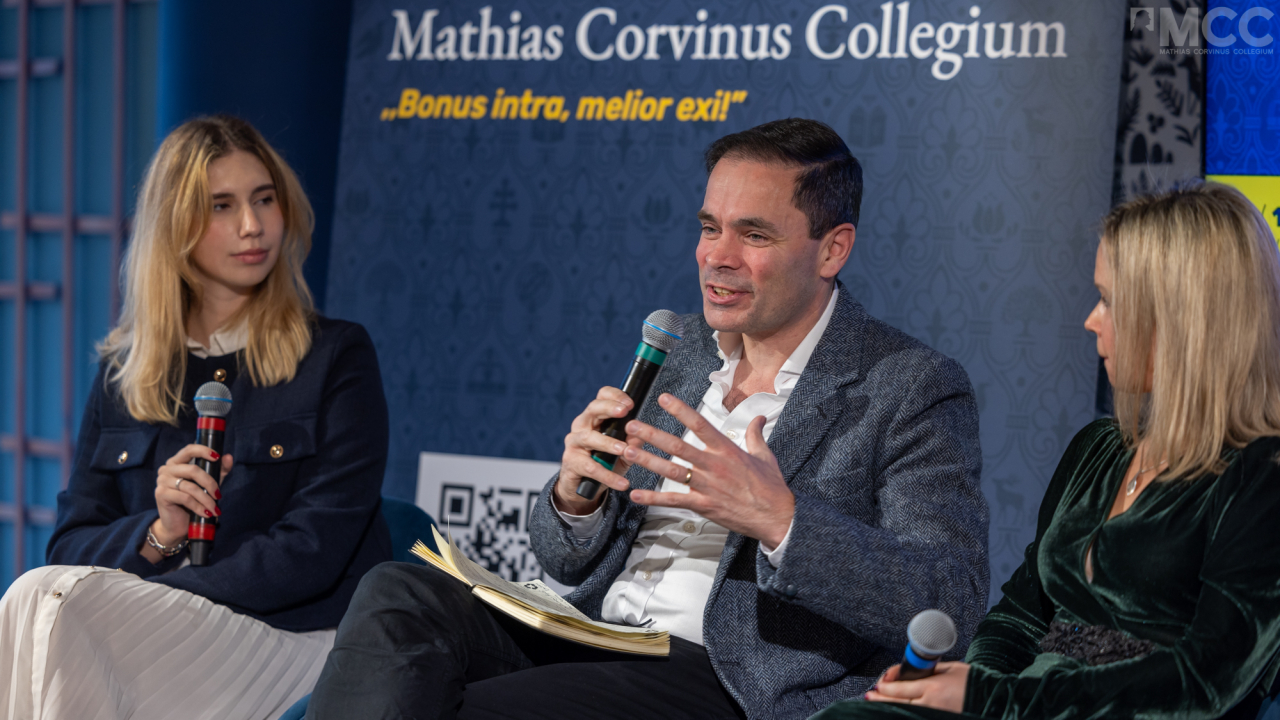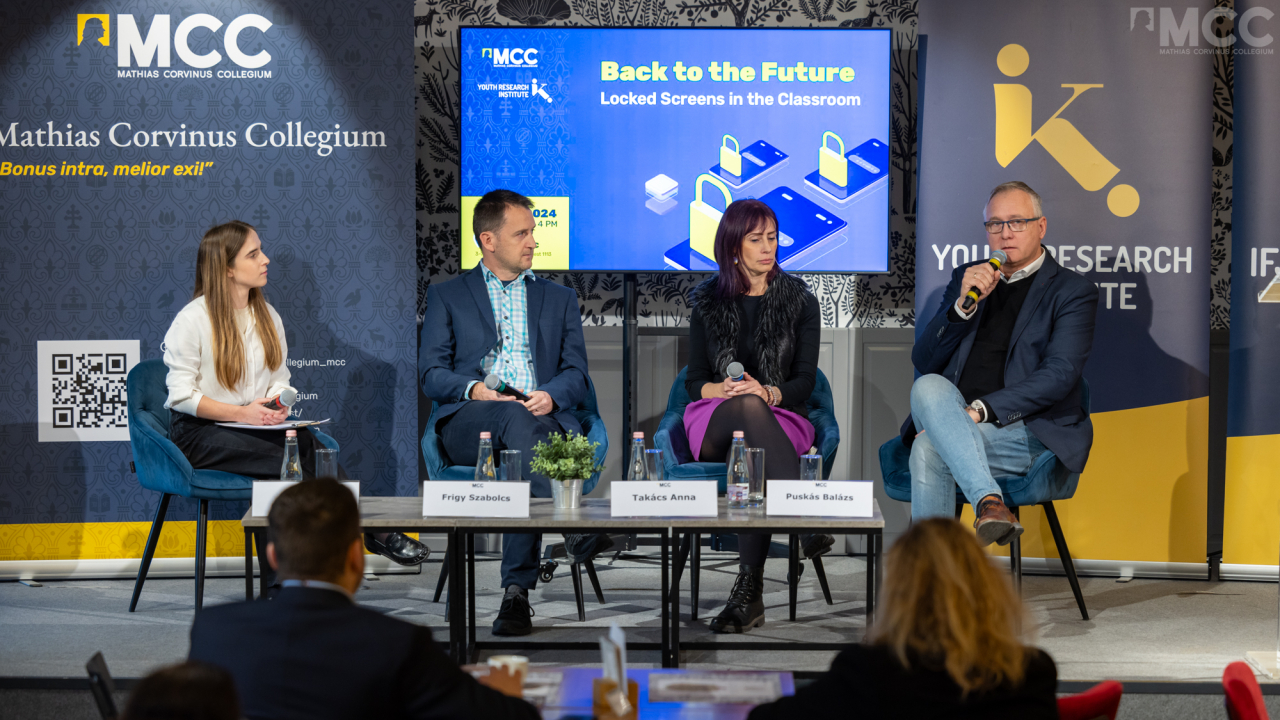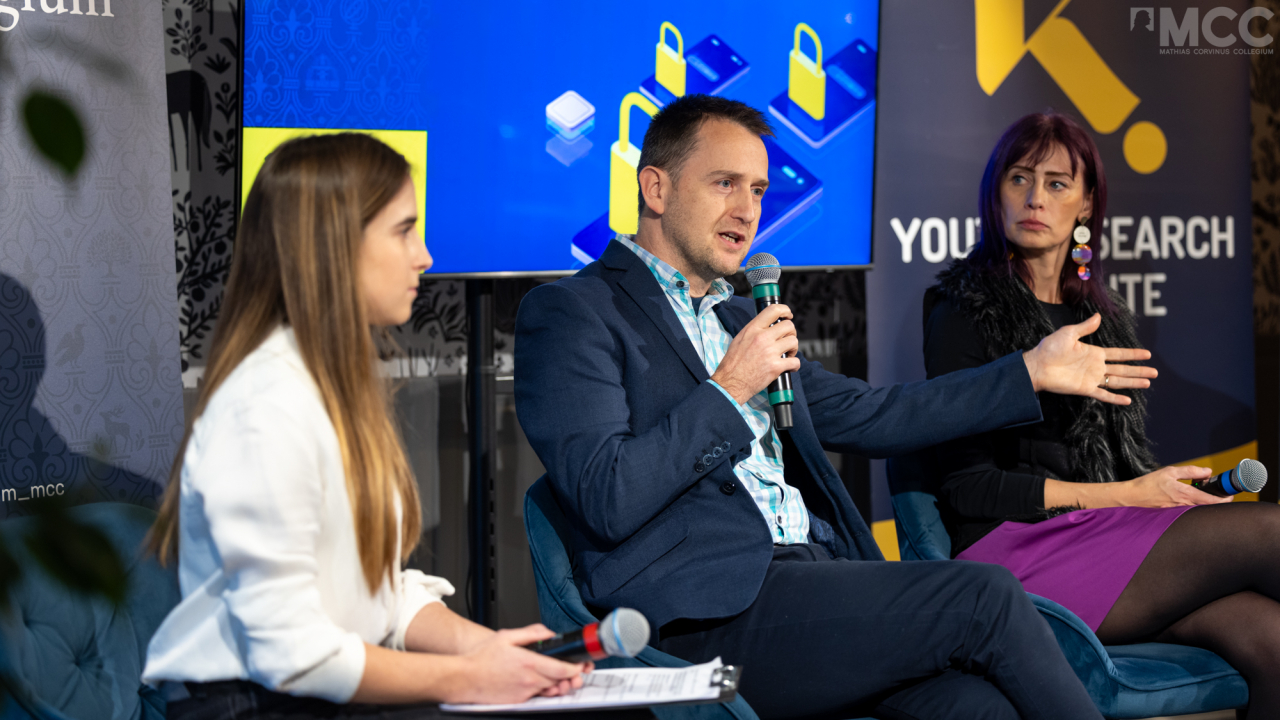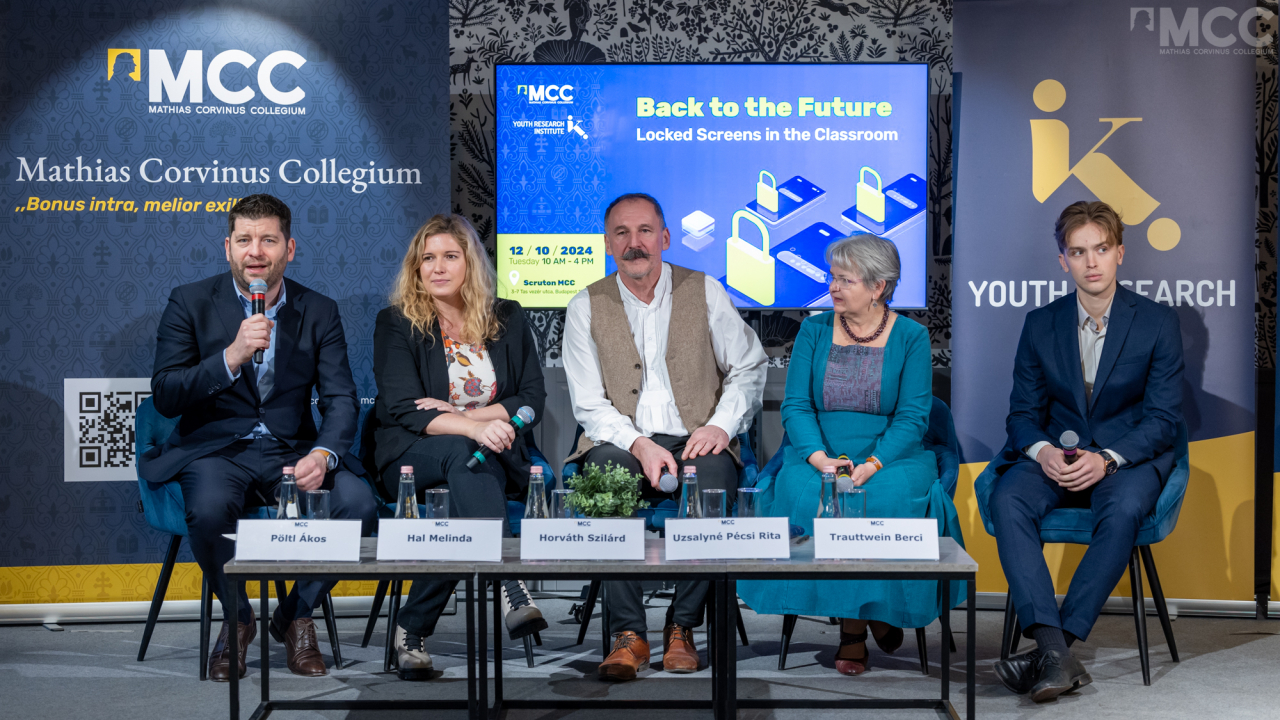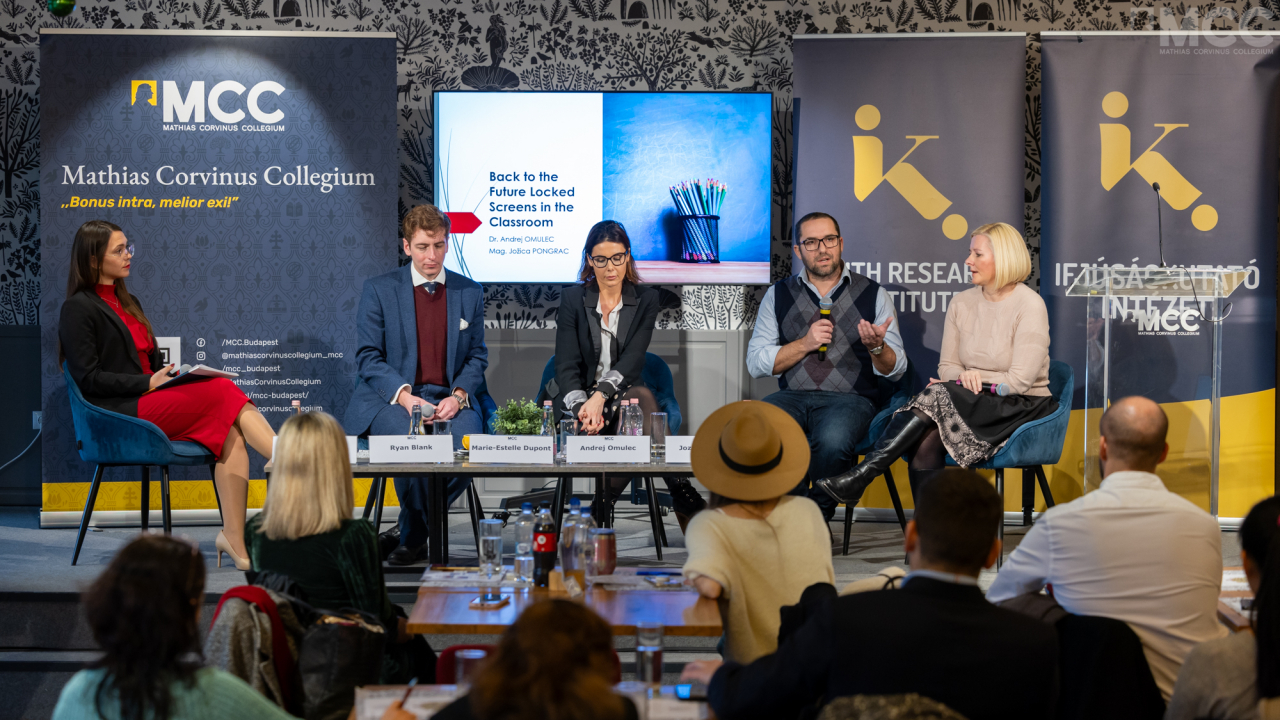Reading time: 6 minutes
The Institute for Youth Research Institute organized an international conference on restricting, regulating and banning the use of smartphones in schools entitled "Back to the Future - Locked Screens in School".
Ákos Pöltl, researcher at theYouth Research Insitute, opened the conference with a thought-provoking presentation on his work and mission. He highlighted the profound and pervasive impact of smartphones on young people, stressing how these devices can dominate children's lives, hinder their learning, damage their mental health and bypass parental control. The expert underlined the importance of international cooperation to develop effective strategies to regulate, control and, if necessary, ban smartphones in schools, thus protecting the well-being of students.
After the introductory remarks, Rachel Harper, leader of the It Takes a Village Initiative and headteacher of an Irish primary school, described the origins, aims and current status of her movement. It Takes a Village is a community-driven program to improve the well-being of primary school children. It was born in response to rising levels of anxiety and focuses on developing digital awareness and emotional skills among children, parents and teachers. Rachel Harper runs the program in partnership with eight local schools, which emphasises the importance of collective action rather than individual responsibility. The initiative includes workshops, a voluntary smartphone-free code and recruitment of play therapists to support children's mental health and resilience.
The panel discussion, entitled " Changing the educational environment: regulations, perspectives and experiences from the UK, Ireland, Hungary and Slovakia ", brought together a panel of renowned experts to discuss the evolving educational environment in these countries. Rachel Harper, Principal of St. Patrick's National School in Ireland and spokesperson for the "It Takes a Village " initiative, joined the panel after her presentation and shared her experiences of promoting community-led education. He stressed that these restrictions should be voluntary, as this is the best way to get parents to support the initiative, often encouraging each other to maintain a smartphone-free community. Robin Millar, former Member of Parliament for North Wales, brought a policy perspective based on government experience, emphasising the importance of preserving parental rights and the sanctity of the family in the context of government regulation and the online community. Michal Bozik, a researcher at the Institute of Child Psychology and Pathopsychology and consultant to the Slovak Ministry of Education, presented a practical perspective on how these regulations are implemented, as he played a key role in the introduction of smartphone bans in Slovak schools. The discussion was moderated by Dorina Marton, a student at the MCC School of Law.
In her presentation "Young Minds and Mobiles: Their impact on students' well-being, mental health and learning abilities ", the panel discussion brought together experts from different fields to explore the complex relationship between young people, technology and education. Clinical psychologist Marie-Estelle Dupont highlighted the psychological impact of smart devices on young people. In a memorable piece of advice, she said parents should not put smartphones in their children's hands until they can hold a pencil properly; in addition to the psychological harm of screen time, she also spoke in detail about how it inhibits children's sensorimotor development. Andrej Omulec, Professor at the Faculty of Social Sciences, University of Nova Gorica, brought a sociological perspective, highlighting that many parents put technology in their children's hands too early through faulty reasoning or manipulation. She stressed that it is the responsibility of parents to see through these arguments and make healthy, safe choices about delaying personal devices or strictly limiting screen time. Jozica Pongrac, a family and couples therapist who conducts research on young people and technology, shared science-based arguments for delaying smartphone use. Her studies show that the brain is only fully developed by the age of 25, so the damage caused by excessive digital exposure is more relevant at a younger age. Ryan Blank, Head of the Department of Politics at Harrow School in London, provided educational and practical context for the discussion. He explained that his teaching method is to break lessons into ten-minute chunks to keep students' attention. He also stressed that teachers should avoid assigning homework that is screen-based, as this can add hours to students' daily screen time. The panel was moderated by Enikő Szakos, researcher at the MCC Learning Institute.
The panel discussion "Regulation in Education: balancing technology, rights and safety in schools" was moderated by Balázs Puskás, Director General of the Catholic Schools Authority of the Diocese of Vác, Szabolcs Frigy, Director of Education and Lecturer at Babes-Bolyai University, László Tóth, Head of the Crime Prevention Sub-Division of the Zala County Police Headquarters, and Luca Bártol, student at the MCC School of Law. The panel focused on the regulatory and security challenges of the presence of digital devices in schools. Participants highlighted that young people are often left alone in the face of the dangers of the digital space, which can lead to bullying, phishing and serious crimes such as child pornography. The issue of equality was also raised, as many students are attacked or excluded because they do not have access to the latest, trendiest technological tools. The need for collaboration between institutions and the importance of parents and schools working together to limit screen time was raised. Participants stressed that regulating digital devices in schools can contribute to the development of students' physical and social skills while reducing the harmful effects of digital devices.
The panel discussion on "Mental health, cognitive development and emotional intelligence among young people " included Berci Trauttwein, developer of the OUT app, Melinda Hal, clinical psychologist, Rita Uzsalyné Pécsi, educator and educational researcher, Szilárd Horváth, founder of the Búzaszem School and MTVA staff member, and Ákos Pöltl, research expert at the Youth Research Insitute. During the discussion, the participants highlighted the impact of excessive mobile use on mental health, in particular how digital devices overshadow social life and the 'real' experiences of young people (essential for their development). Participants argued that children's nervous systems develop properly through active movement, artistic activities and real human interaction, rather than through digital content. They pointed out that children are also affected by their parents' mobile phone habits, so limiting screen time not only at school but also at home is essential. The phenomenon of "digital autism" was also discussed, which can cause developmental disorders in young people who overuse devices. Suggestions for solutions included introducing mobile phones at a later age and minimising and reducing their use.
The event ended with a closing speech by Levente Székely, Director of theYouth Research Institute. The full conference can be viewed on the Institute's YouTube channel.
